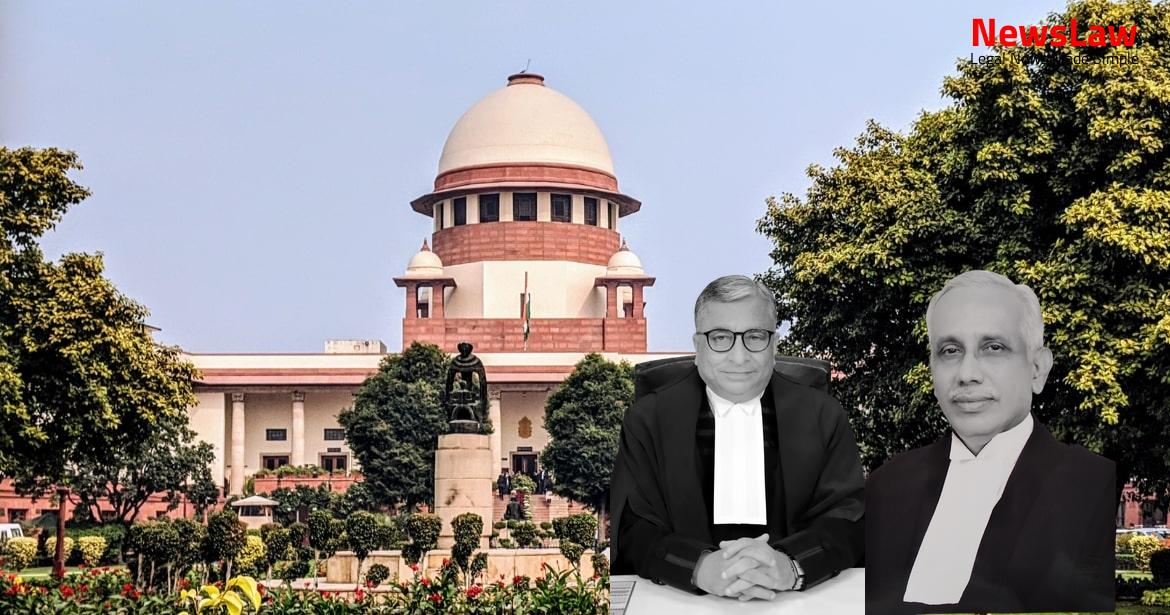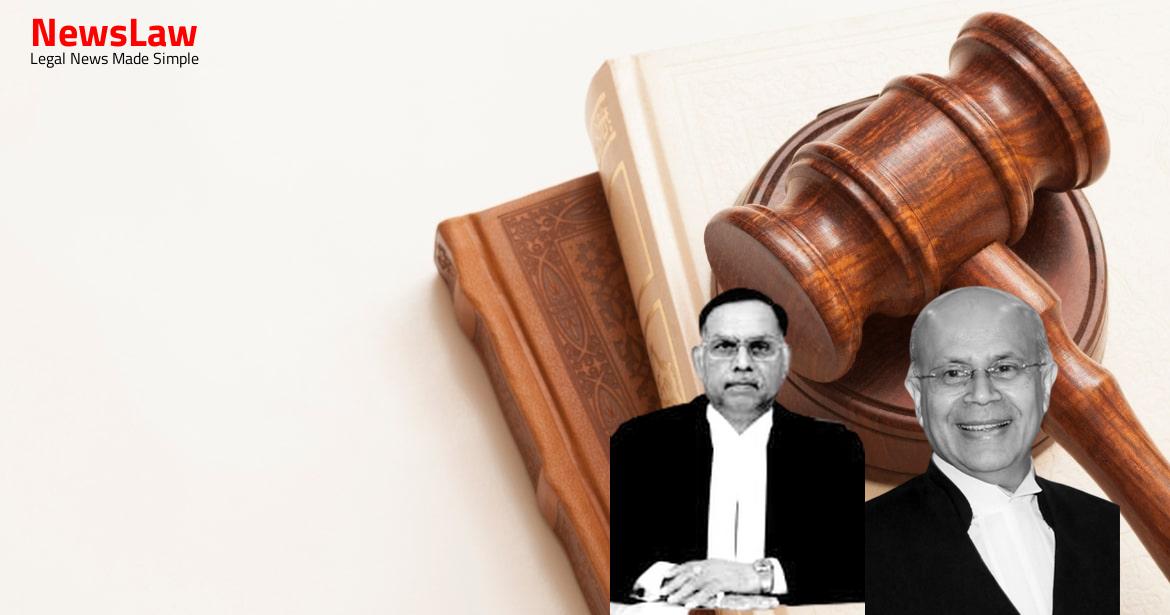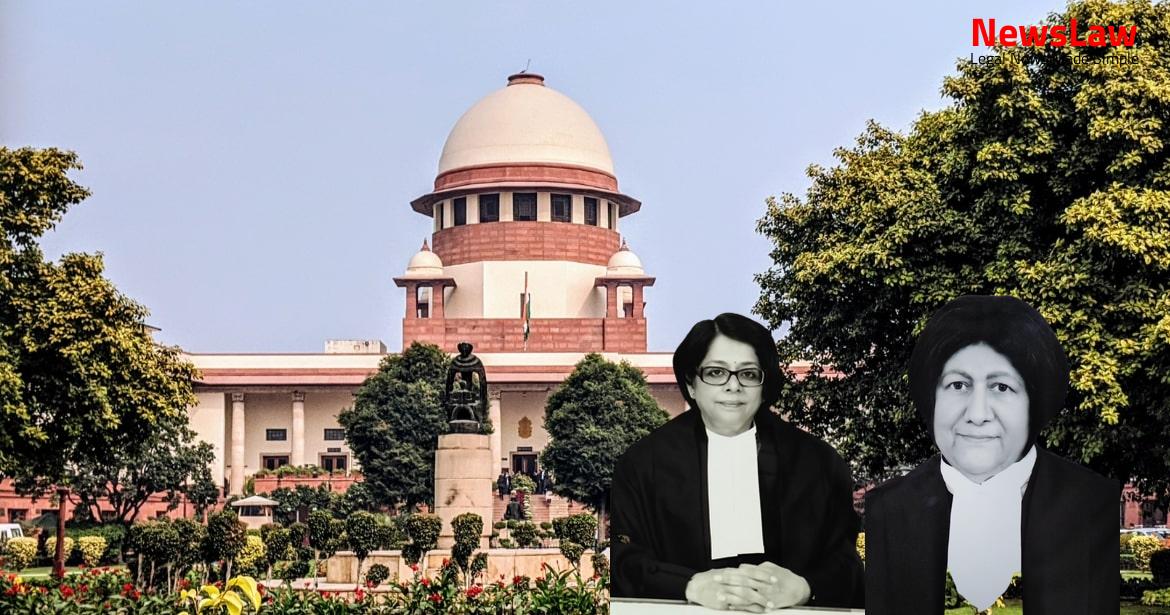Delve into the comprehensive legal analysis of inheritance rights under Hindu Law in a recent court case. The focus is on understanding the application of key legal principles and rules governing the devolution of properties, particularly in the context of self-acquired property of a deceased individual. The court’s interpretation of Mitakshara Law, Hindu Succession Act provisions, and the order of succession among heirs plays a crucial role in shaping the outcome of the case.
Facts
- Marappa Gounder died leaving behind defendants 1 to 4 as heirs. Ramayeeammal died leaving behind defendants 7 to 9.
- The plaintiff-appellant, Thangammal, died leaving behind appellant nos. 1, 3, and 4. Appellant no. 1, Arunachala Gounder, also deceased, is represented by appellant nos. 1 and 2.
- The defence claimed that Marappa Gounder died on 11.05.1949 and not on 14.04.1957 as alleged by the plaintiff. According to Hindu Law prior to 1956, Gurunatha Gounder was the sole heir of Marappa Gounder and inherited the properties.
- The suit property was purchased independently by Marappa Gounder in 1938 through a Court auction.
- Kuppayee Ammal inherited Marappa Gounder’s property after his death in 1957 and upon her death in 1967, the children of Ramasamy Gounder were entitled to equal shares.
- The plaintiff asserted Marappa Gounder’s death as 14.04.1957, while the defendants claimed 15.04.1949.
- The Trial Court concluded that Marappa Gounder died on 15.04.1949 and the property devolved upon Gurunatha Gounder by survivorship, dismissing the suit filed by the plaintiff for partition.
- Trial Court findings on the date of death of Marappa Gounder in 1949 were confirmed
- High Court in the first appeal affirmed the Trial Court’s decision
- Decree dismissing the suit for partition was affirmed
- Property to devolve upon the defendant by way of survivorship
Also Read: Assessment of Loss of Earning Capacity in Motor Accident Claim
Issue
- Primary issue is regarding the right of the sole daughter to inherit self-acquired property of her father.
- Key question is whether the property will devolve to the daughter or father’s brother’s son.
- Questions to be answered include nature of the property, succession in case of separate property, daughter’s right to inherit, and order of succession after daughter.
Also Read: Enhancement of Compensation in Workmen’s Compensation Act Case
Arguments
- Daughter is not disqualified to inherit in separate property of her father under Hindu Law.
- Property purchased through Court auction sale is considered independent property, not joint family property.
- Property would devolve by succession upon Marappa Gounder’s daughter, Kupayee Ammal, who died in 1967.
- Right to inheritance under Mitakshara law depends on propinquity of relationship, with daughter having closer proximity.
- Three classes of heirs recognized by Mitakshara: Gotrajasapindas, Samanodakas, and Bandhus, with priority of succession.
- Arguments presented by the respondent’s counsel stating that the property was purchased by Marappa Gounder in a court auction using family funds, making it joint property.
- The Trial Court concluded that the plaintiff and her sisters were not heirs of Marappa Gounder at the time of his death in 1949, thus dismissing the partition suit.
- Respondent’s lawyer emphasized that Marappa Gounder’s property devolved to Guranatha Gounder, the father of defendants, making it his property and not subject to partition.
- The absence of evidence or framing of issues by the plaintiff’s side regarding the nature of the property purchased in the auction in 1938.
- The date of Marappa Gounder’s death in 1949 as a factual finding not open to interference, according to two fact-finding courts.
Also Read: Legal Analysis: Quashing of FIR and Criminal Proceedings
Analysis
- The Mitakshara law recognizes inheritance by succession but only to the property separately owned by an individual, male or female.
- The Hindu Law of Inheritance (Amendment) Act, 1929 introduced female statutory heirs recognized by the Madras School, such as the son’s daughter, daughter’s daughter, sister, and sister’s son in a specific order.
- The Act did not modify the fundamental concepts of Hindu Law relating to inheritance but included these female heirs as ‘gotra sapindas’.
- Under Mitakshara Law, the right to inherit arises from propinquity or proximity of relationship.
- Mitakshara classifies blood relations into categories such as Gotra-sapindas, Samanodaka, and Bhinna gotra sapindas based on the degree and type of connection to the deceased.
- Property belonging in common to a united Hindu family, upon division, goes according to the general descent rules for separate property.
- The succession of self-acquired property follows a special pattern, especially after the enforcement of the Hindu Succession Act, 1956.
- In cases of succession opening after 1956, the Act applies, granting rights to Class-I heirs, such as daughters of the deceased, in the inheritance process.
- The judicial precedents and interpretations play a crucial role in determining the succession and inheritance rights under Hindu Law.
- The Mitakshara Law recognizes the right of daughters and daughters’ sons to succeed to the property.
- Various cases and commentaries highlight the importance of daughters and daughters’ sons in inheritance.
- The succession in the case of a Hindu male dying intestate is governed by inheritance rather than survivorship.
- Daughters inherit the estate of a man who died separated from his coparceners.
- In cases of failure of male issue and a widow, the daughter would take precedence.
- The Hindu Law recognizes the daughters’ right of succession, especially in the absence of male heirs.
- The legislative intent behind enacting Section 14(I) of the Hindu Succession Act was to grant Hindu women absolute interest in inherited properties, converting limited estates into absolute estates.
- The succession of properties of a female Hindu dying intestate follows the rules laid out in Sections 15 and 16 of the Act.
- Exceptions to the general order of succession are carved out under Section 15(2) for inherited properties from the father, mother, husband, or father-in-law of the deceased female Hindu.
- If a female Hindu dies intestate without leaving direct heirs, the property inherited from specific family members devolves to their respective heirs as per the Act.
- The key principles and rules for the devolution of inherited properties within the female Hindu’s family are outlined in Sections 15 and 16 of the Act.
- The Act ensures that inherited properties of a female Hindu dying intestate go back to the source of inheritance, following specific rules from the father’s or mother’s side.
- The provisions of Sections 14, 15, and 16 were analyzed in various court cases to determine the order of succession and distribution among the heirs of a deceased female Hindu.
- The Act also specifies that the daughters of a Hindu father, regardless of being married or unmarried, succeed to the father’s estate as joint holders.
- The commentary from ancient texts like ‘Vrihaspati’ and ‘Manu’ supports the equal inheritance rights of daughters in the absence of direct male heirs.
- Legal interpretations have reaffirmed the importance of identifying the source of inherited property to determine the order of succession among heirs in the event of a female Hindu dying intestate.
- The Trial Court and High Court did not consider settled legal propositions applicable to the case.
- There was a lack of attention to key legal points in the decision-making process.
Decision
- Parties can invoke the jurisdiction of the appropriate court for the preparation of the final decree as per the law.
- The impugned judgment and decree dated 01.03.1994 by the Trial Court and confirmed by the High Court on 21.01.2009 are set aside.
- The appeal is allowed, and the suit is decreed.
- A preliminary decree is to be drawn accordingly.
Case Title: ARUNACHALA GOUNDER (DEAD) BY LRS Vs. PONNUSAMY (2022 INSC 74)
Case Number: C.A. No.-006659-006659 / 2011



